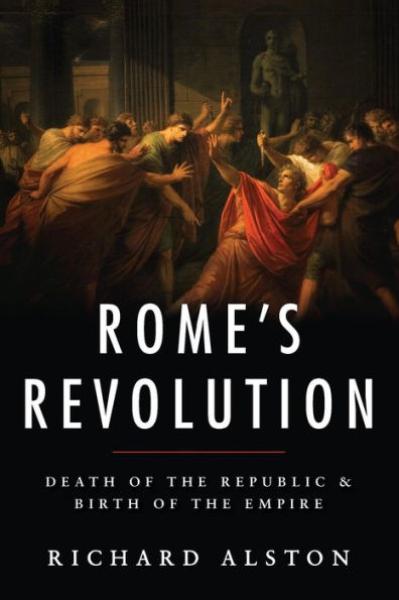Description
Rome's Revolution provides a riveting narrative of this tumultuous period of change. Historian Richard Alston digs beneath the high politics of Cicero, Caesar, Antony, and Octavian to reveal the experience of the common Roman citizen and soldier. He portrays the revolution as the crisis of a brutally competitive society, both among the citizenry and among the ruling class whose legitimacy was under threat. Throughout, he sheds new light on the motivations that drove men to march on their capital city and slaughter their compatriots. He also shows the reasons behind and the immediate legacy of the awe inspiringly successful and ruthless reign of Emperor Augustus. An enthralling story of ancient warfare, social upheaval, and personal betrayal, Rome's Revolution offers an authoritative new account of an epoch which still haunts us today.
... Alston provides a lively narrative of the course of Roman history in the period. Particularly suitable for those only passingly familiar with this era in Roman history --A. A. Nofi, NYMAS
In Rome's Revolution, Richard Alston presents an excellent, concise survey of the key period of Roman history from the fall of the Republic to the rise of the Empire. He also reminds us that, however much politics and oratory influenced these years, it was violence that ultimately changed Rome. --Philip Freeman, author of Alexander the Great and Julius Caesar
A skillfully woven portrait of the establishment of the Roman principate, dyed in much blood. --Tom Holland, author of Rubicon and In the Shadow of the Sword
With violence and bloodshed at its very heart, Rome's Revolution will take readers out of their historical comfort zone. Richard Alston sets out to elucidate the messy nature of Roman history and to reject the utility of the concepts of consensus, settlements, and so on that have dominated the study of ancient history for more than a generation. --Ray Laurence, author (with Alex Butterworth) of Pompeii: The Living City
Relentlessly exposing the bloody ruins and mangled corpses beneath the shining surface of order and peace restored after the age of Rome's civil wars, Alston's compelling narrative of the violent transition from Republic to Empire helps us understand a lesson that matters to all ages-not least our own: that the benefits of empire (whatever its nature) come at a tremendous price-a price that is but insufficiently expressed by the much abused ideal that we, like the Romans, call liberty. --Kurt A. Raaflaub, editor of War and Peace in the Ancient World
...[an] impressive, original, and illuminating work... Highly recommended. --CHOICE
[A] vigorous, swift-paced account of events...[P]articularly strong at describing the military campaigns leading to crucial battles. -- History Today
Alston carefully deconstructs the myths Romans held about their own origins and political values, breaking down the narratives about civilization and democracy to show the messy inner workings of an ancient system built on hierarchy and violence...a strikingly poignant examination of the dangers in self-aggrandizing myths of national glory, and the ways in which efforts to return to a non-existent past can push a state further from their supposed values. -- Briedy Heing, The Daily Beast
Product Details
- Oxford University Press, Brand
- May 1, 2017 Pub Date:
- 0190663464 ISBN-10:
- 9780190663469 ISBN-13:
- 408 Pages
- 9.2 in * 6.2 in * 0.8 in Dimensions:
- 1 lb Weight:




